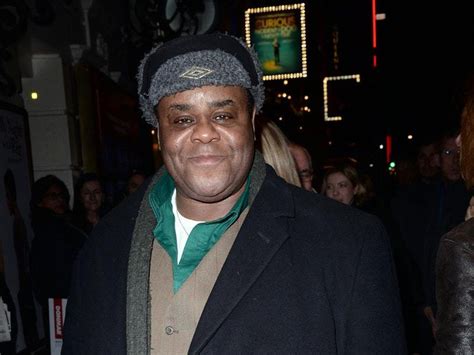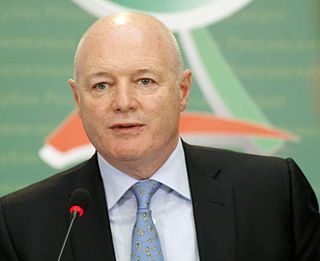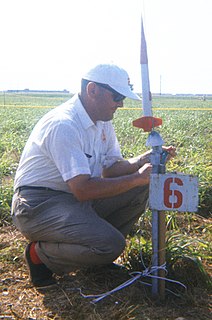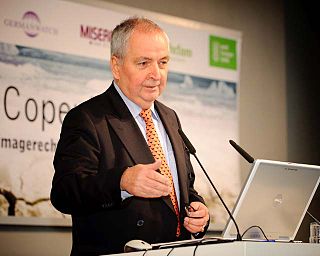Top 216 Tourism Quotes & Sayings - Page 4
Explore popular Tourism quotes.
Last updated on December 18, 2024.
I like what Barcelona is doing. This city almost perfectly combines its natural advantages with cultural attractions, IT parks and first-rate educational opportunities. The same applies for Dublin, which manages to achieve a blend of complexity, tolerance and artistry and makes a point of not devoting every part of the city to the tourism industry. Sometimes creativity also means forgoing short-term profits and simply saying no.
Great Wass Island Preserve is a 1,579-acre Nature Conservancy jewel, a place of spectacular botanical interest, and Jonesport is situated on a postcard-pretty harbor. Tourism is not serious business in those parts - boat building and fishing are - and there are no signs telling how to get to Great Wass. But I know.
The bottom line is 2018 should finally be the year where we see the early stages of broad-based commercial space tourism appear. Demand will certainly be driven by the early successes or failures of those missions, the marketing of those missions, as well as the propensity for tourists to become repeat flyers.
Photography - the supreme form of travel, of tourism - is the principal modern means for enlarging the world. As a branch of art, photography's enterprise of world enlargement tends to specialize in the subjects felt to be challenging, transgressive. A photograph may be telling us: this too exists. And that. And that. (And it is all 'human.') But what are we to do with this knowledge - if indeed it is knowledge, about, say, the self, about abnormality, about ostracized or clandestine worlds?
I do a lot of work in travel and tourism, and I think this story is in the book. This woman is in a hammock, and she's got the beach below her and the sky above her, and the ocean beyond her. She's relaxing. She's got a drink in her hand and a book. Every woman sees this picture and says, I want to be in that hammock. Every guy sees the picture and says, I want to be in that hammock with that woman. It works for everybody.
Flight out of the atmosphere is a simple thing to do and should have been available to the public twenty years ago. Ten years from now, we will have space tourism where you will be able to see the black sky and the curvature of the earth. It will be the most exciting roller coaster ride you can buy.
Poverty cannot be accepted as a pretext and justification for the exploitation of children. It does not explain the huge global demand with, in many instances, customers from rich countries circumventing their national laws to exploit children in other countries. Sex tourism has spread its illicit wings wide, and paedophiles search for their victims in all parts of the globe. The problem is compounded by the criminal networks which benefit from the trade in children, and by collusion and corruption in many national settings.
When I say tourism is sin and traveling on foot is virtue, it's condensed into a dictum. It's much more complex than that, but let's face it, for me, my experience, the world reveals itself to those that travel on foot. You understand the world in a much deeper level. And it does good to anyone who makes film.
The great thing about London is the little pockets of culture, like Hackney, which has its panto and its great community. Of course there's also the West End with its brilliant theatres and thriving tourism but to also have areas like Hackney which are so community based but not exclusive, that remind you that those surrounding you are the most important, is what makes London what it is.
At the very simplest, I think as Van Gogh said and St Francis would have said, we must find nature. Just to be in the presence of nature your feelings and 'little seedlings' start to awake. So if we disassociate ourselves from God we cut nature out, too. More and more we turn nature into a commodity, into eco-tourism. But we must integrate it into the way people live every day.
As we've seen the rise of cultural, environmental and educational tourism in adventure travel, we've also seen the rise of female participation. Part of that is due to changes in women's attitudes about their own abilities. As more women participate in such things as fly-fishing, whitewater kayaking and bicycling, we're also seeing concurrent growth in those areas in adventure travel.
I think it is very important to conserve and protect the natural world. I’ve just come back from Costa Rica and they are really big on eco tourism. They have lots of reserves, and they are really into protecting wildlife. I visited a reserve called Cabo Blanco. You walk into the reserve and there are capucine monkeys swinging from the trees and sloths. I am big into nature, and seeing animals in their natural habitats. I love it.
here are problems with the Turkish products inside Russia and the tourism going down. People are worried about that. But the really big economic weapons, oil and especially natural gas, those have not been brought into play yet - mostly in the form of threat so far. So basically the view from here is that, yeah, things are getting bad, but they could still get much, much worse.
Tourism is a crucial industry that could employ millions of Filipinos, skilled and unskilled alike, cross those 7,107 islands of the Philippines. From the current projection of 3.3 million tourist arrivals in 2010, our aim is to eventually attract 6 million tourists. In the process, we expect to create 3 million jobs in the next six years.
Market studies suggest space tourism-a rubbernecker's trip to earth orbit-is likely to draw 50,000 passengers a year if the ticket can be pushed below $25,000. That's what tens of thousands of people spend each year on competing trips, such as round-the-world cruises on luxury liners and adventure tours to Antarctica or Mount Everest.
Watching Italians eat (especially men, I have to say) is a form of tourism the books don't tell you about. They close their eyes, raise their eyebrows into accent marks, and make sounds of acute appreciation. It's fairly sexy. Of course I don't know how these men behave at home, if they help with the cooking or are vain and boorish and mistreat their wives. I realized Mediterranean cultures have their issues. Fine, don't burst my bubble. I didn’t want to marry these guys, I just wanted to watch. (p. 247)
Brothers and Sisters: Our ancient homeland is spotted today with an array of chemical dumps. Along the Niagara River, dioxin, a particularly deadly substance, threatens the remaining life there and in the waters which flow from there. Forestry departments spray the surviving forests with powerful insecticides to encourage tourism by people seeking a few days or weeks away from the cities where the air hangs heavy with sulphur and carbon oxides.
Industrial tourism is a threat to the national parks. But the chief victims of the system are the motorized tourists. They are being robbed and robbing themselves. So long as they are unwilling to crawl out of their cars they will not discover the treasures of the national parks and will never escape the stress and turmoil of the urban-suburban complexes which they had hoped, presumably, to leave behind for a while.
Coral reefs are under assault. They are rapidly being degraded by human activities. They are over-fished, bombed and poisoned. They are smothered by sediment, and choked by algae growing on nutrient-rich sewage and fertilizer run-off. They are damaged by irresponsible tourism and are being severely stressed by the warming of the world's oceans. Each of these pressures is bad enough in itself, but together, the cocktail is proving lethal.
The global phenomenon of poverty tourism - or 'poorism' - has become increasingly popular during the past few years. Tourists pay to be guided through the favelas of Brazil and the shantytowns of South Africa. The recently opened Los Angeles Gang Tour carries visitors through battle-scarred territories of urban violence and deprivation.
The practice of soulful travel is to discover the overlapping point between history and everyday life, the way to find the essence of every place, every day: in the markets, small chapels, out-of-the-way parks, craft shops. Curiosity about the extraordinary in the ordinary moves the heart of the traveler intent on seeing behind the veil of tourism.
On the one hand, you have markets such as Singapore and Thailand, with an extremely strong inbound booker market and a well-developed tourism industry. You also have markets that are just opening up to tourists, like Myanmar, that have massive growth potential and then markets that are extremely fragmented within themselves such as Indonesia.
Tourism as a number-one industry is a terrible, terrible idea for any city, especially New York. If you were going to turn a city, which is a place where people live, into a tourist attraction, you're going to have to make it a place that people who don't live here, like. So I object to living in a place for people who don't live here.
What I am saying every day to Malawians is that time has come for us to move from aid to trade. We have picked several sectors that we think we can focus on immediately in order for us to grow our economy. So we have decided to diversify agriculture, we decided to develop our tourism sector, we have decided to develop our mining sector.
Exploration belongs to the Renaissance, travel to the bourgeois age, tourism to our proletarian moment.The explorer seeks theundiscovered, the traveler that which has been discovered by the mind working in history,the tourist that which has been discovered by entrepreneurship and prepared for him by the arts of mass publicity.If the explorer moves toward the risks of the formless and the unknown, the tourist moves toward the security of pure cliché. It is between these two poles that the traveler mediates.
One of the biggest things going on in London, Amsterdam, San Francisco, and New York right now is gentrification. Every major city is dealing with gentrification, and it's always the sex workers they come for first. Cities feel they have to clean up their image and make themselves more attractive for tourism, more attractive to businesses. The Gezi Park struggle in Turkey a few years ago, for example, was a popular movement defending public space and land. What I found when I was digging into the goings on there was that the park was a place where transgender sex workers felt safe.
I sat on a toilet watching the water run thinking what an odd thing tourism is. You fly off to a strange land, eagerly abandoning all the comforts of home and then expend vast quantities of time and money in a largely futile effort to recapture the comforts you wouldn’t have lost if you hadn’t left home in the first place.
For 25 or 30 years I never had an assignment. These were all stories I wanted to do myself. So they were always about somebody I like, 'cause if I didn't like him, I just didn't do the story. And to have somebody else paying the bills for this tourism, to every corner of every stage, over and over again? Why, who wouldn't want a job like that?


































